Luxembourg, formally “Grand Duchy of Luxembourg,” is an inland country in the western part of Europe. Its capital, Luxembourg City, is besides Brussels and Strasbourg, one among the three official capitals of the European Union and also the seat of the European Court of Justice, the highest juridical authority within the EU.
Its culture, people and languages are extremely tangled with its neighbors, creating primarily a mix of French and Germanic cultures. This is often emphasized by the three official languages, Luxembourgish, French and German.
Let’s check out the main attractions to visit in this small country rich in history.
1. Casemates du Bock

In the 10th century, Count Siegfried designed a fortified castle on a natural elevation that was soon to become the shield of the town. Within the course of the centuries, its defenses were bolstered by 24 forts, 16 different robust defenses and a 23-kilometer network of casemates: these couldn’t solely shelter thousands of troopers and horses but additionally housed workshops, kitchens, bakeries and slaughterhouses.
In 1867, once the declaration of neutrality was made, the military withdrew from the defense and through the subsequent 16 years, ninetieth of the defenses were dismantled. However, it was proven to not be possible to blow up the casemates without also devastating a part of the town. Therefore, the entrances and also the key connecting galleries were sealed. In spite of this, 17 kilometers of tunnels stay, usually on completely different levels and tremendous stairways penetrate up to 40 meters within the rock face.
Casemates du Bock
Address: 10 Montée de Clausen, 1343 Luxembourg
Website: Casemates du Bock
2. Grand Ducal Palace

Constructed between 1572 and 1574 and official seat of the head of state, the Grand Ducal Palace is attention-grabbing in more than one way. For Luxembourg, it’s the image of national independence; for historians, it’s an illustration of continuity in the exercise of power through centuries of foreign domination or dependence; for art lovers, its façade is a reflection of Hispano-Moorish style; for tourists, it’s a gorgeous monument wherever the grand duke resides.
Since 1890, once Grand Duke Adolph succeeded on the throne, the palace has been the residence of the sovereign. Restored in 1995, the Grand Ducal Palace is one of the main attractions of the capital.
Since 1977, the Grand Ducal Palace has opened its doors for guided tours between July and September. The sovereigns’ residence attracts some ten thousand guests each season.
Palais Grand-Ducal
Address: 32 Rue de l'Eau, 1449 Luxembourg
Website: Palais Grand-Ducal
3. Mudam museum

The renowned Sino-American architect Ieoh Ming Pei selected Fort Thüngen site to construct the museum of the modern Art or “Mudam”.
Set out on three levels over 6,000 square meters, Mudam invites the art lovers to explore the contemporary art of over two hundred works with the participation of more than a hundred artists.
MUDAM Luxembourg (Musee d'Art Moderne Grand-Duc Jean)
Address: 3 Park Drai Eechelen, 1499 Luxembourg
Website: MUDAM Luxembourg
You might be interested in these Airbnbs!
4. Fort Thüngen

Constructed in 1732, Fort Thüngen is named after the Austrian commander of the defense, Baron of Thüngen. In 1836, the Prussians extended the Fort and in 1860, they reinforced it once more.
In 1870 and 1874, it had been demolished: solely the three round towers, called “Three Acorns” and the foundation walls, uncovered in 1991, remained in good condition. In Fort Thüngen, you can also explore the treasures of Mudam museum and Dräi Eechelen museum.
Fort Thüngen
Address: 1499 Luxembourg City, Luxembourg
Website: Fort Thüngen
Luxembourg Tour Guide
Miriam Meda
I inspire and help you on your trips to Belgium with my project, Curiositas Mundus. My goal is to avoid you any surprises once you land in this beautiful and small country. Traveling with kids? No problem. Are you a high school teacher preparing for your next study trip? No worries. Families? Friends? Solo travel? VIP? Companies? Universities? Lost souls? Restless minds? Physical challenges or difficulties? All of you are welcome! My specialty is the preparation of tours all over the country. I can guide you through the Belgian streets, museums, bars, chocolate paradises and other places of interest. I want my services to be cultural, responsible, and engaged with the local people. I already have ideas to improve that relationship tourists-inhabitants and to work also with local non-profit associations and businesses :-) In a more personal way, but also related to this nice job of guiding strangers from all over the world, I am a crazy learner of history (especially European history), art, literature, comics (long life to Marvel), languages (you can contact me in English, French, Spanish or Dutch; now I am trying to learn Japanese), philosophy, sociology, politics, videogames and so on! Above all, I have tons of curiosity about everything that surronds me.
5. Notre-Dame Cathedral

This splendid Gothic edifice was made in the 17th century. In addition to a noteworthy treasury, the cathedral has a yearly ceremony after Easter, when pilgrims seek protection from Virgin Mary. After that, they process in the streets holding her statue to an altar covered with flowers.
Cathédrale Notre-Dame
Address: Rue Notre Dame, 2240 Luxembourg
Website: Cathédrale Notre-Dame
6. Place d'Armes

Completed in the 17th century, Place d'Armes is also named “The City Parlor.” Louis XIV’s army designed it for the use of parades.
As an integral a part of the pedestrian zone, encircled by numerous street cafés and restaurants, it hosts concerts and the Market of Christmas. it’s become the place where the young and also the old, the locals and also the guests meet.
Place d'Armes
Address: Place d'Armes, 1136 Luxembourg
Website: Place d'Armes
7. Adolphe Bridge

Also known as New Bridge, it was erected between 1900 and 1903 during the rule of Grand Duke Adolphe. This event was followed with great interest from abroad. Due to its 153 meter length and its arches spanning over 85 meters, this bridge got up until then the title of “the biggest stone arch bridge in the world.”
This bridge has been renovated many times to adjust the installation of an electrical tram, to replace railings, to repave the surface, to widen it by sixty centimeters on all sides, to resurface it and to refit it for use of tram.
Adolphe Bridge
Address: 1116 Luxembourg City, Luxembourg
Website: Adolphe Bridge
8. Philharmonie Luxembourg

Philharmonie Luxembourg, additionally called the Grande-Duchesse Joséphine-Charlotte concert hall, is a fantastically designed venue on Luxembourg City’s picturesque Kirchberg plateau. Opened in 2005, the Philharmonie Luxembourg is the home of the Luxembourg Philharmonic Orchestra.
It hosts touring performers from around the world. you’ll be able to hear orchestral performances, jazz shows, chamber music recitals and experimental sounds at this elegant trendy hall. you’ll also be able to attend one of the annual festivals, including the Rainy Days modern music festival in November and also the Luxembourg festival.
It has two eating facilities. You can relish an opulent pre-concert dinner at the restaurant or you can stop at the foyer bar for mezzo-style snacks and drinks before and after the show.
Philharmonie Luxembourg
Address: 1 Place de l'Europe, 1499 Luxembourg
Website: Philharmonie Luxembourg
9. The Old Quarter, Luxembourg City

Built by the Spaniards and the French in the seventeenth century, this pedestrian promenade is named “the most beautiful balcony of Europe.”
It extends towards the seventeenth century town ramparts with the scenery of the river canyon and the Wenceslas Wall fortifications. The walk continues crossing Victor Thorn Boulevard to the Tower of the Triple Gate.
The Old Quarter
Address: Vieille Ville, Luxembourg City
Website: The Old Quarter
10. Luxembourg American Cemetery Memorial

The cemetery was established on December 29, 1944 by the American Army. The city of Luxembourg served as headquarters for General George S. Patton who is buried here. Conjointly lie in this burial site 5,076 service members, many of whom lost their lives in the Battle of the Bulge and in the advance to the Rhine River.
The burial site consists of nine sections interspersed with four fountains, majestic trees and expansive rose and rhododendron beds. It’s an appropriately tranquil final resting place for these Americans who gave their all.
Lux American Cemetery
Address: 5230 Luxembourg City, Luxembourg
Website: Lux American Cemetery
Formidable Inland Country
Luxembourg is the ultimate vacation getaway destination for many. They have historical monuments, art museums, great food spots, beautiful scenery and more. Don’t miss your chance of getting to experience all this as well!
History
Get Trip101 in your inbox
Unsubscribe in one click. See our Privacy Policy for more information on how we use your data






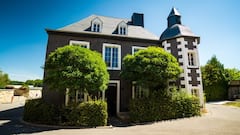
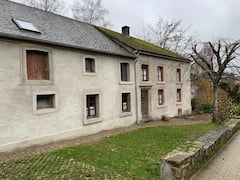
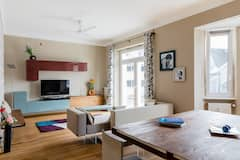
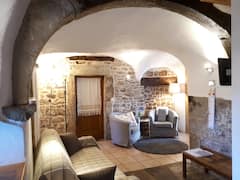
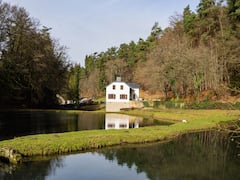











Create an account to